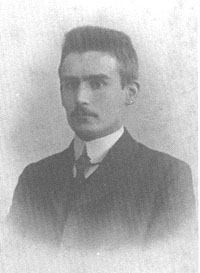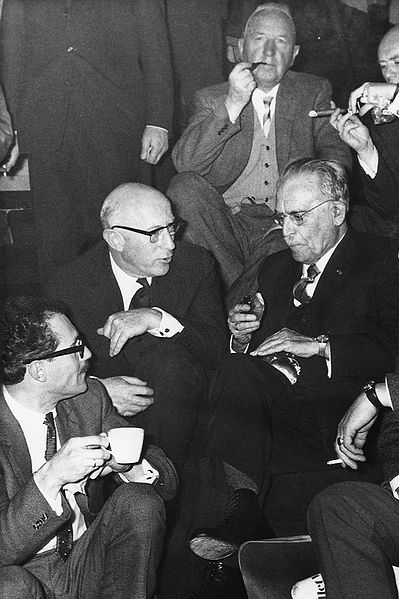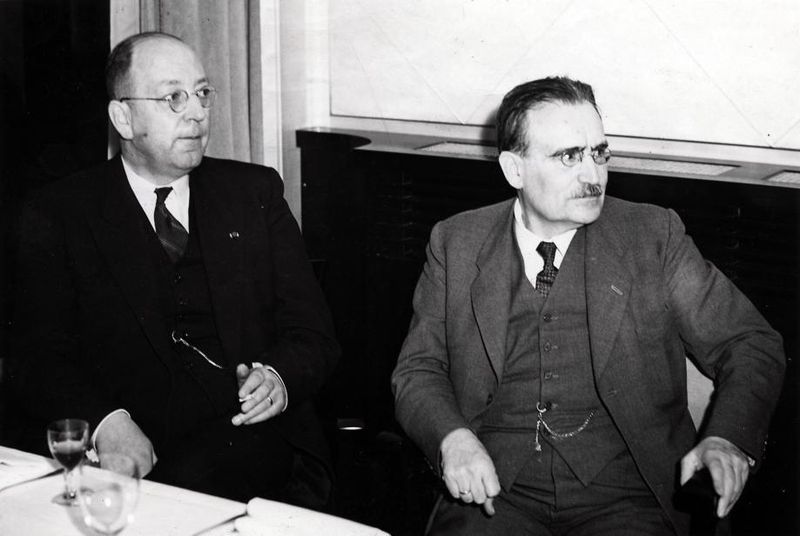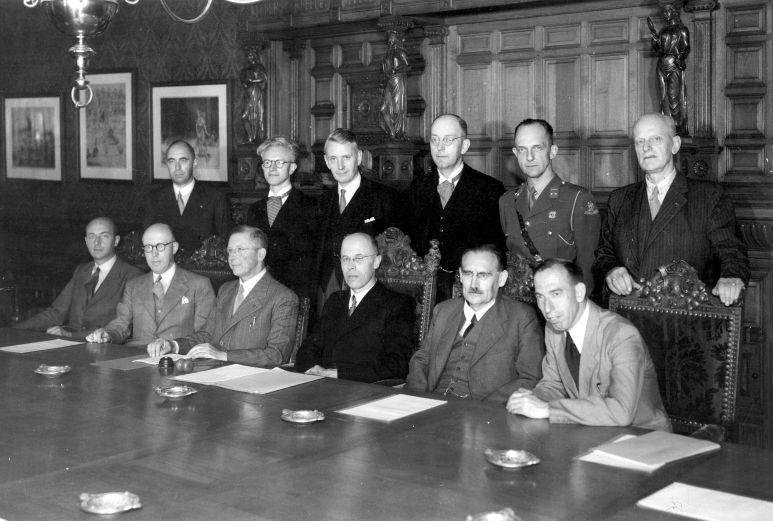<Back to Index>
- Evolutionary Biologist Ernst Walter Mayr, 1904
- Violinist and Composer Jan Kubelík, 1880
- Prime Minister of the Netherlands Willem Drees, 1886
PAGE SPONSOR



Willem Drees (July 5, 1886 – May 14, 1988) was a Dutch politician of the Labour Party (PvdA). He served as Prime Minister of the Netherlands from August 7, 1948 until December 22, 1958. He is praised by many as the most important Dutch politician after World War II for his important contributions and social reforms laws. Drees was chosen as the best Prime Minister of the Netherlands after World War II after an opinion polling conducted by the VPRO in 2006.
Willem Drees was born in Amsterdam on July 5, 1886. After completing his secondary education in 1903 he worked until 1906 for the Twentsche Bank in Amsterdam. This was followed by a period as a stenographer with the Municipal Council of Amsterdam and then between 1907 and 1919 with the Dutch Parliament.
In 1904 he joined the Social Democratic Workers' Party, which later was absorbed into the Dutch Labour Party in 1946. From 1910 to 1931 he was chairman of The Hague branch of the Social Democratic Workers' Party and between 1913 and 1941 a member of the Municipal Council of The Hague. During that period he was alderman for social affairs from 1919 to 1931 and for finance and public works through to 1933.
For 22 years between 1919 and 1941 Drees also held a seat on the Provincial Council of South Holland and for 19 years between 1927 and 1946 one on the Social Democratic Workers' Party executive. Between 1933 and 1940 he represented the Social Democratic Workers' Party in the House of Representatives and from 1939 as the Chair of the Parliamentary Party in the House of Representatives
Thereafter, from June 24, 1945 to August 7, 1948 Drees was Minister of Social Affairs and Deputy Prime Minister in the Cabinet Schermerhorn / Drees. From August 7, 1948 to December 22, 1958 he was Prime Minister of the Netherlands in four successive cabinets Drees I, Drees II, Drees III and Drees IV . Drees's
period in office saw at least four major political developments: the
traumas of decolonization, economic reconstruction, the establishment
of the Dutch welfare state, and international integration and co-operation, including the formation of Benelux, the OEEC, NATO, the ECSC, and the EEC. When his Cabinet broke up in December 1958, he was appointed to the honorary position of Minister of State, the Dutch Labour Party appointed
him a member of its Executive Council for life in 1959. Due to impaired
hearing he stopped attending its meetings in 1966. He strongly
disagreed with New Left tendencies in the membership and strategies of
the Dutch Labour Party.
He eventually gave up membership of a party he had served for close to
67 years. He remained a very active observer of Dutch politics,
publishing a substantial number of books and articles until the age of
97.
During the German occupation he was taken hostage in
Buchenwald concentration camp in
October 1940. Freed one year later, he played a prominent role, as
vice - chairman and acting chairman of the illegal Executive Committee of
the SDAP, and as a prominent participant in secret interparty
consultations. In 1944 he became chairman of the Contact Commissie van
de Illegaliteit and a member of the College van Vertrouwensmannen which
the London government in exile charged with the preparation of steps to
be taken at the time of liberation. Drees was an Esperantist and addressed the 1954 World Congress of Esperanto, which was held in Haarlem. Both his sons Jan Drees and Willem Drees Jr. were active members of the Dutch Labour Party, but left the party around 1970 to join the Democratic Socialists '70.
The cause was a row with younger party members who wanted to plot a
more radical leftwing course for the party. Drees himself left the Dutch Labour Party in 1971 leaving them without their icon, but he never joined the Democratic Socialists '70. Drees was a Teetotaler. Willem Drees died on May 14, 1988 in The Hague, two months before his 102nd birthday. In 2004 he ended in third place in the election of The Greatest Dutchman.


